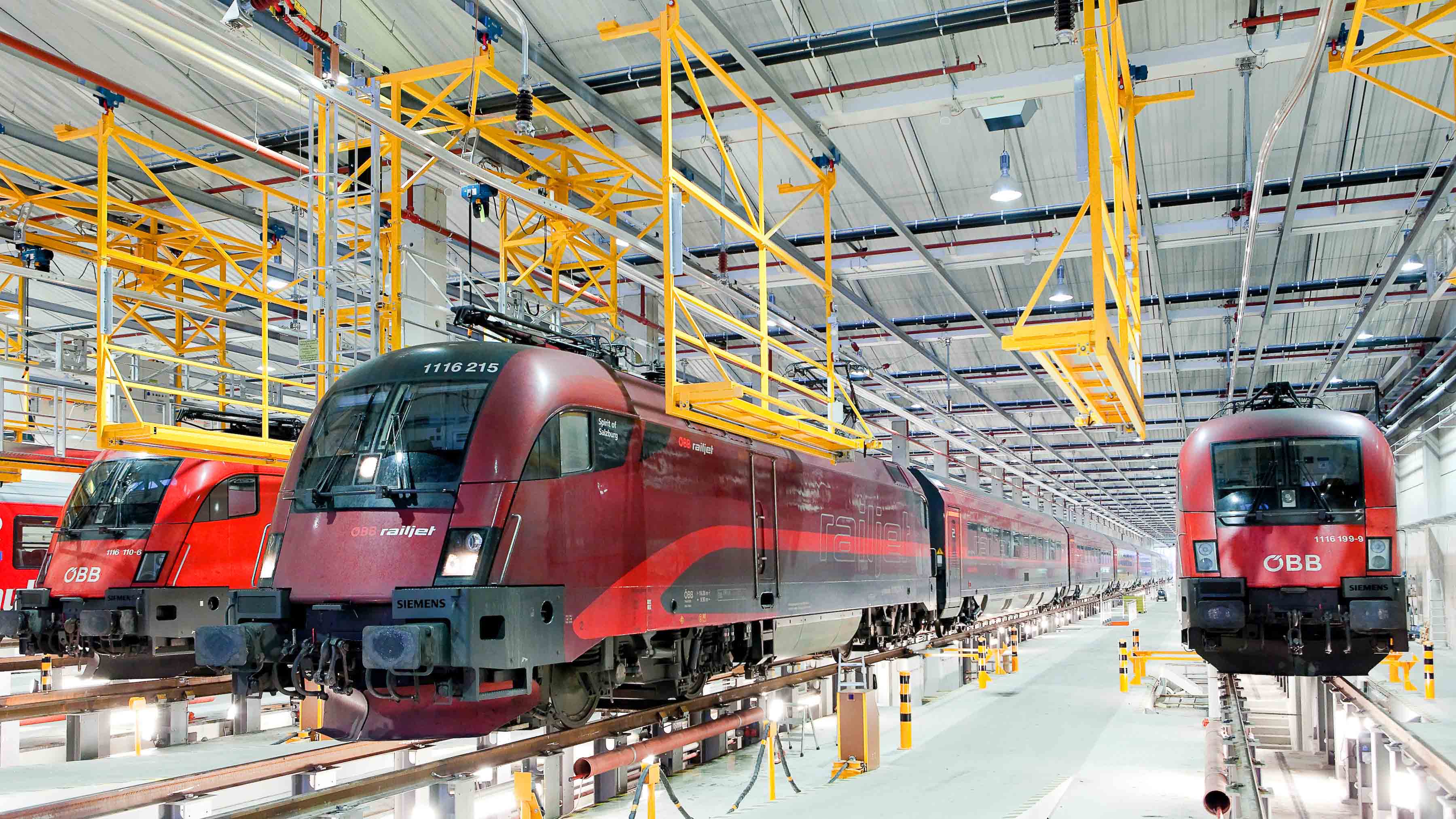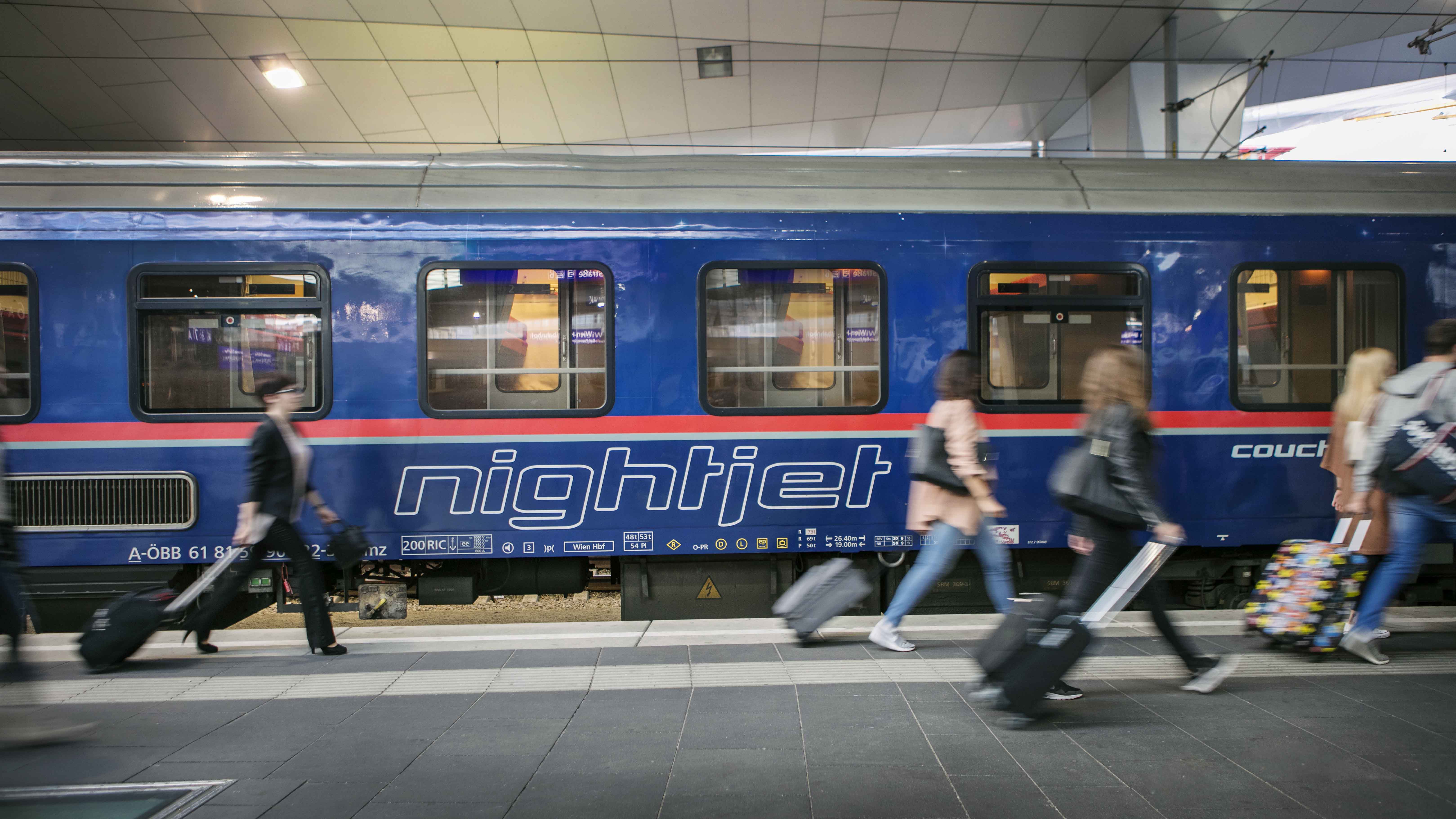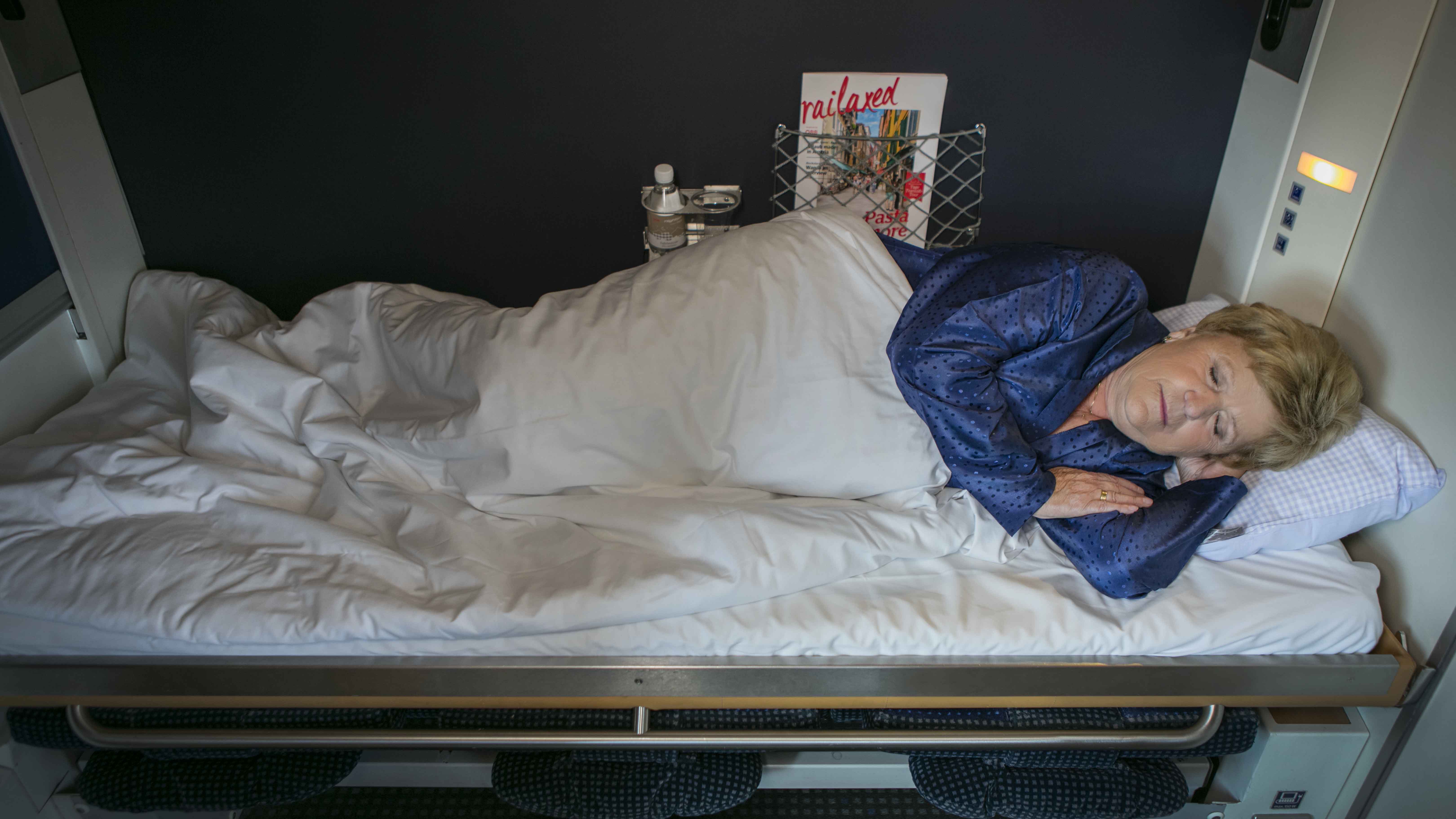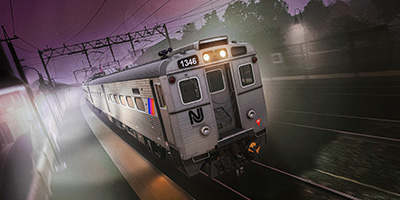WE ARE MANY.
WE ARE RAILFANS.

Railfan-Joe
August 12th, 2021
ÖBB, or Österreichische Bundesbahnen, are the national railway operator of Austria. Though founded in 1923, they today form some of Europe's most advanced and wide-spread passenger services including their flagship Railjet and Nightjet services that travel into a number of bordering nations. We sat down with ÖBB spokesperson Bernhard Rieder to discuss their operations, the benefits of Railjet and Nightjet trains and how Europe is encouraging safe travel during the COVID-19 pandemic.
We continue our chat from the first instalment, which you can read here. In that, Bernhard Rieder introduces the Railjet services and the kinds of passengers ÖBB take across Europe.
 (Featured image) Nightjet - © ÖBB/Harald Eisenberger
(Featured image) Nightjet - © ÖBB/Harald Eisenberger
"So talking more about the operational side of things, when it comes to crossing borders and using these trains in different countries, what is that like for the people operating the trains?"
You know, the biggest challenge in Europe for rail travel is that national regulations and rules were first established a couple of hundred years ago and we still face the situation that when you first cross a border, you have these different regulations - no matter which border you cross. There are a few systems which are very, very similar. Between Austria and Germany it is pretty similar, but even when you start going to Switzerland which is the next closest system to us, with the same catenary power, the same track gauge and the same signalling system, they have a different overhead catenary lines which means you need a different pantograph if you go to Switzerland. So what do you do if you have different signalling systems, different voltage? Some countries have 15000V, some have 25000V, Italy has 3000V so it's very complex. Their signalling systems are very different so this is a hardware issue but we say we can adapt our trains and locomotives to go to different countries.
But the more systems you put into a train, the more expensive they get. On a technical side, we can probably put everything in a train that we would need in Europe, but the train would be so expensive and inefficient that you need to think: 'To which countries do I want to go?' and put just those systems in the train - a locomotive just for the countries that you're going to. So on our Railjet locomotive, we have different versions. Some are more for the Italian side, some are more for the Hungarian and Czech side, so we have to adapt our trains always beforehand when we do the planning of the construction of the train for the country that we'd want to go. Again, technically, it is all possible but economically, we have to be careful which packages we put in the train. You can image if you put so many signalling systems, catenary voltages and things in, then the investment into this train can rise quickly and it may not be profitable. We need much more standardisation within Europe. If we get more standardisation, we can have trains with a cheaper base cost, a cost that the passengers will not feel. It doesn't benefit anyone to have so many different systems.
On the other hand we have the human resources side, in that in nearly every country, their national language is the language of their train operations. Having said this, it might be easier for an Austrian driver to go to Switzerland or Germany but as soon as you go to the Czech Republic or Hungary, it can get very complex. So again for us the cheaper option is to go to a border station and change our driving personel. It is cheaper especially if you're working with other national train operators that we change the driver on the border. It's a quick thing, they wait, the train arrives and after two minutes of changing the train can go. But it is more efficient to do this then to have many multilingual people. You won't find people that speak Czech, Italian, German, Slovakian or whatever - it's impossible and therefore we still change drivers at the borders.
 ÖBB Motive - © ÖBB/Roman Bönsch
ÖBB Motive - © ÖBB/Roman Bönsch
"That's fascinating - in Britain we don't have a lot of public services that cross borders and those that do are mainly the Eurostar so I don't know how that compares..."
I assume they have French and English speaking people, probably?
"Yes and like you mentioned about the cost of building locomotives to cross borders, we too in Britain have dedicated locomotives to cross into France (the Class 92) so that is interesting! Now, I imagine Coronavirus has seen a drop in passengers in the last 2 years. How has that affected you and what is the Open Up To Europe campaign going to do to help? Are those two subjects linked?"
We all know that everything linked to travelling has gone down during Coronavirus. Hotels, recreation, airlines - the same applies to rail businesses. So especially in March and April 2020, when it first appeared, we had a dramatic situation where we had on some lines just 10% of people on trains that were operating normally. It was a shock! The entire country, all of Europe, the entire world was paralysed. Fortunately, we could overcome this pretty quickly after a few months. I think the first 6 to 8 weeks - that was the first really hard lockdown. With all the others, people were still going to work and so on, but we had during 2020 only 60% of the passengers we would have normally. So after this summer, which now in central Europe is still quite good with the figures, they are going up a little bit and we are kind of back to normal. With the normal commuting services we are close to the number before. We will never quite reach the numbers we had before as more and more people use their home offices and with video conferencing etc we will probably not reach those levels again in the next year but I think we are in a good, stable area with commuting services.
On the long distance service we are again not where we were in 2019 but we are also very, very stable. We have a little less business travellers and we miss the international tourism because the Americans and Asians are really good customers - they often book first class, they always want the best service! But we don't see these people at the moment on our trains. However, for the European leisure travellers we see a good summer, especially in the night train business. In the last 2 weeks I took two night train trips from Zurich to Hamburg and from Amsterdam to Vienna and the trains were completely full and even fully booked for a few weeks! If you want to get a sleeping compartment for the summer, it might be a bit tricky to get one on some routes! So there we see that people really want to travel, people will travel again and they are doing it. We see that Coronavirus is a thing that can affect our business pretty quickly. As soon as national governments make new regulations for entry or entry bans, we see drastic drops immediately. Especially if bigger countries are doing this like Germany, for example if they put a ban in place for those from Italy, we will see passengers travelling from Italy drop dramatically. But at the moment we have a good summer for leisure travellers.
 Nightjet - © ÖBB/Harald Eisenberger
Nightjet - © ÖBB/Harald Eisenberger
"That's really good to hear - it's the same here and in a lot of other countries. Even the London Underground was quiet which is never normally the case! So Open Up To Europe then - you've spoken a little bit about tourism, what benefits have you seen from that campaign?"
The Open Up To Europe campaign is an initiative started and supported by the European Travel Commission. The key message of the campaign is to bring Europe back: Visit Europe, travel in Europe is possible and travel safely and responsibly. Yes we're in different times, but please come and see Europe. And we're focusing in this campaign on our side in these 3 areas. For us, safe travelling is with the Nightjet. Nightjet is the most environmentally friendly way to travel overnight through Europe. We're operating 19 lines across the continent and offering private compartments which is important for Coronavirus as you can book to travel with just your friends and family if you want - unlike an airplane where you're touching the person next to you! This is the point we're at in the campaign and we're supporting it with a microsite. It's a very good signal for Europeans - Europe is a safe and good continent and there are many options now to come and visit it!
 Nightjet - © ÖBB/Harald Eisenberger
Nightjet - © ÖBB/Harald Eisenberger
"That sounds like a great campaign! Is there anything else you'd like to mention?"
We touched on it just a little bit earlier, but for us the night train business is something unique for us at ÖBB and we have a focus on night train travelling. We are the benchmark for other European countries, we have now made a memorandum of understanding with other big train operators like SBB, DB and for French services SNCF and we'd like to expand these night train services in the future. We just opened a new line from Vienna to Innsbruck and Amsterdam and we have new lines opening in December 2021 from Vienna to Paris and from Amsterdam to Zurich. This differentiates us from other train operators in Europe and we're really proud to have Nightjet as this national brand established over Europe.
"A great brand indeed. Thank you for taking the time to talk to us Bernhard."
To find out more about ÖBB and the Railjet / Nightjet services, visit https://www.oebb.at/en/ and to find out more about the Open Up To Europe campaign, see https://etc-corporate.org/campaign/openuptoeurope/ or https://openuptoeurope.eu/partners/obb/



